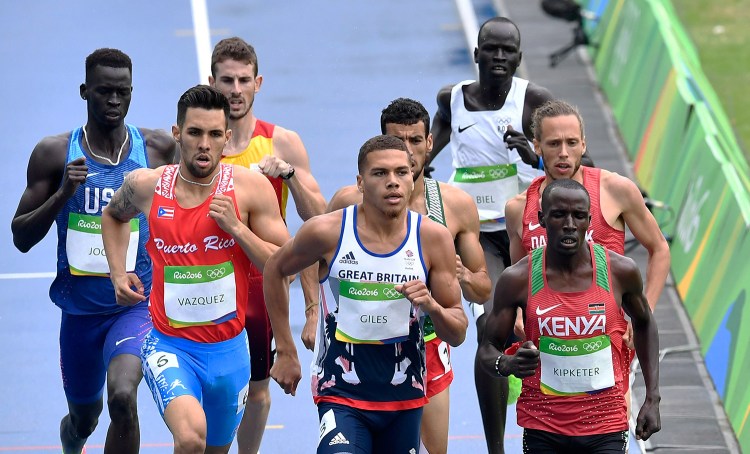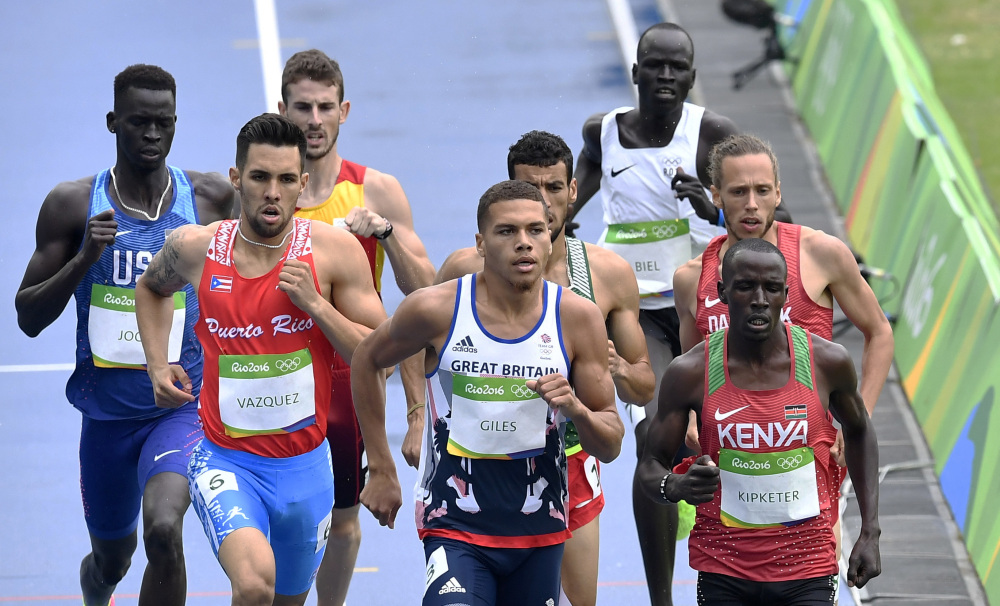RIO DE JANEIRO – He’s had no home for most of his life. Yet in a cavernous, mostly-empty stadium in Brazil, a world away from where he came from, Yiech Pur Biel felt as if he’d found one.
Unseen and alone no more, the refugee runner heard the cheers washing over him.
One of 10 members of the Olympic refugee team, Yiech took to the track for 800-meter qualifying Friday to write the latest chapter in a story that began on the dusty ground at the Kakuma refugee camp in Kenya, and led all the way to Rio de Janeiro
“We’re refugees,” said Yiech, who has had no country to call home since he was a child. “Sometimes we feel that we are isolated from other people. But this chance gives us hope in our life.”
These Olympics have been infiltrated with nonstop news about poor preparation, dirty water and, of course, doping, much of which has its roots in the track meet that kicked off on Yiech’s big day.
As he strode through his two laps wearing his white jersey with the black letters “ROT” stitched on, he served up a much-needed reminder about what these sometimes overwrought, overpriced Summer Games are supposed to represent. He finished in 1 minute, 54.67 seconds, in seventh place in his heat, far behind the lead pack. And yet, it was his personal-best time, adding another exclamation point onto a day he’ll never forget.
“I heard about Rio since I was a young boy,” Yiech said. “But the Olympics? Now it is a real thing that’s happening. Most of us don’t know about the Olympics. Most of my life, I spent in camp. I don’t have time to go and look at sport.”
The trip to Rio brought other firsts. Yiech’s first trip on an airplane. His first ride up an elevator. His first trip to anything nearly as magnificent as the Christ the Redeemer statue that overlooks the Olympic city.
Yiech said the message of Jesus standing there, arms spread, represents more than a religious message. It’s one of welcoming and tolerance – the same sort of message he’s trying to spread in his short time at the Olympics.
The International Olympic Committee has been criticized for a lot in the lead-up to these Olympics. One decision not being second-guessed was the call to allow six men and four women from different parts of Africa and the Middle East to compete under the Olympic flag. The IOC called it a “symbol of hope”‘ for the ever-growing number of migrants and refugees around the world.
No argument from Yiech, who was 9 and living in southern Sudan when his mother, out of food, left him with a neighbor to go in search of something to eat. She never came back. Yiech was sent alone to the Kakuma camp, where around 200,000 people live.
“I say that the (United Nations) are my parents,” Yiech said.
Done with his race, he shook hands with David Rudisha, the world-record holder and defending Olympic champion. When it comes to running 800 meters, these two men seem far apart. That Yiech was able to run on the track with Rudisha for a day made anything seem possible.
“I told him, ‘This is the beginning of my journey. Although I don’t have a good time now, one year, two years from now, I’ll get that title from you,”‘ Yiech said.
Send questions/comments to the editors.



